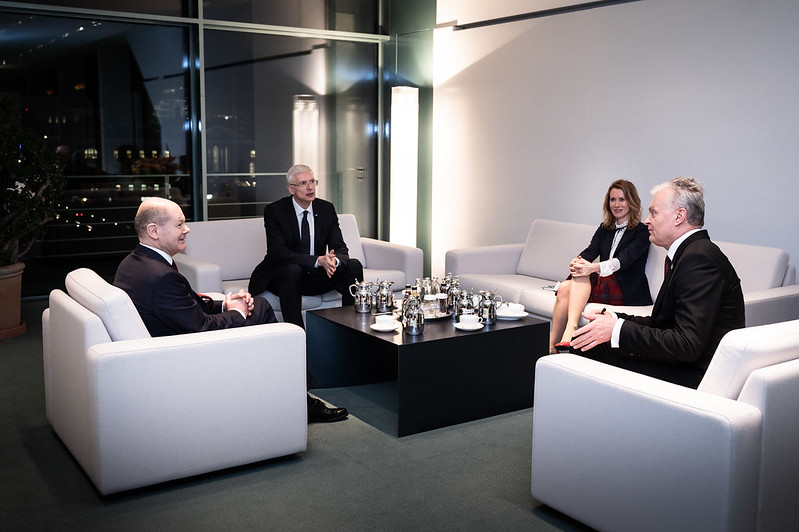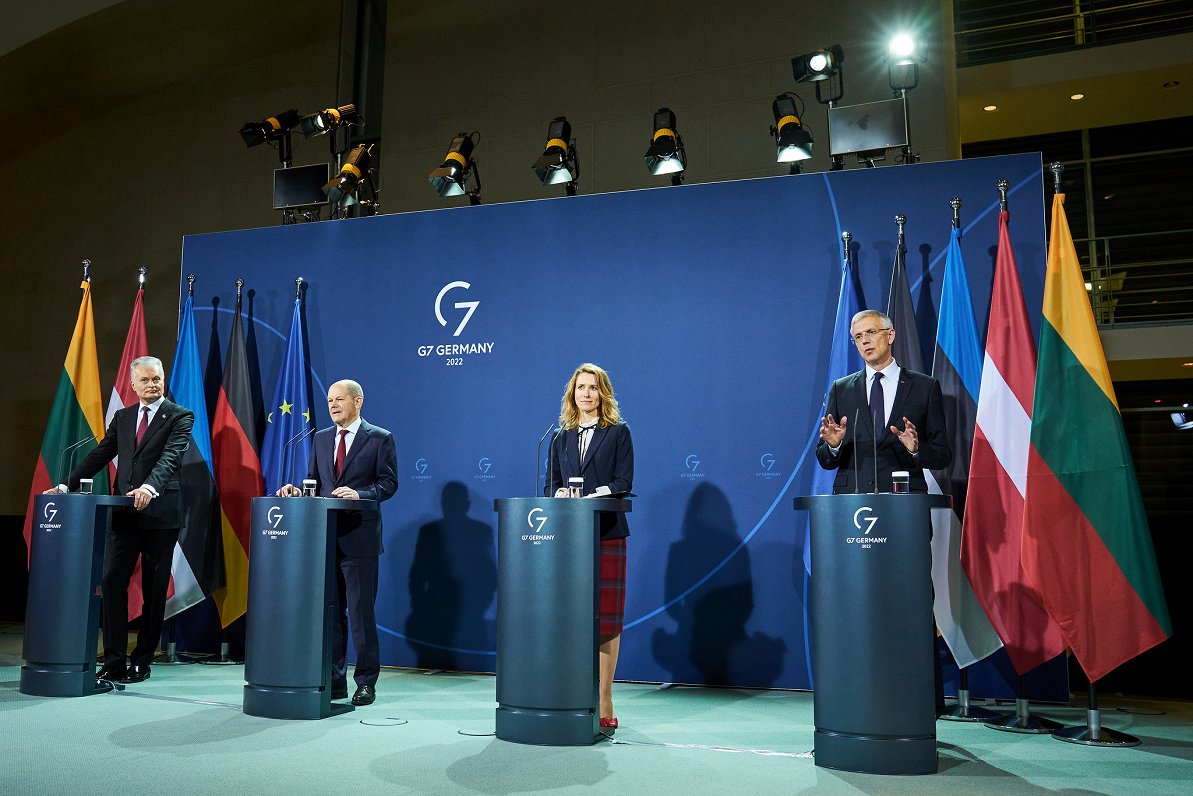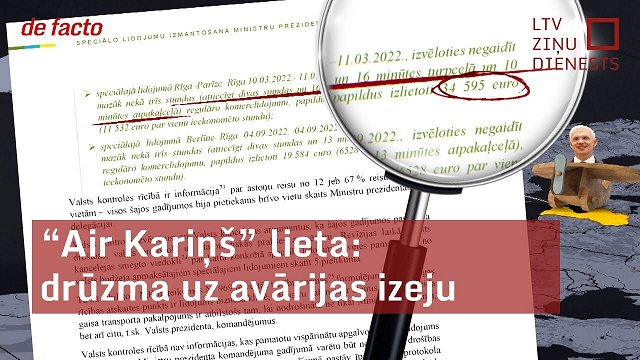"We are united and determined," Scholz said, noting that the region was directly affected by Russian military activity.
"The need at the moment is for de-escalation," Scholz said, urging Russia not to underestimate the unity and steadfastness of NATO. "We take the concerns of our allies very seriously. We stand at your side. This is very important to me," he said.
"At the moment, nothing less is at stake than preventing war in Europe," Scholz said. He confirmed that Germany would send a further 350 troops to its units in Lithuania.

Estonian Prime Minister Kaja Kallas, Latvian Prime Minister Krišjānis Kariņš and Lithuanian President Gitanas Nauseda met Scholz in Berlin.
"It is a matter of decisive importance that we strengthen NATO's eastern flank," Nauseda said. "Our alliance must be in a position to react rapidly and with determination in the region."
Kallas called on the European Union and NATO to show "unity, determination and strategic patience." Any sign of disunity or lack of determination could send the wrong signal to Russia, she said.
Kariņš emphasized that the EU and NATO had to "argue from a position of strength," adding that Germany's role was of "fundamental importance."
It was "essential" that Germany take a leading role in guiding EU and NATO member states through difficult times, Kariņš said.
In a subsequent series of comments on Twitter, Kariņš said: "The changes in the security situation with regard to deployments in Belarus mean that we need to look at a bolstered Allied presence in our region for a foreseeable future. This is not a short term endeavor."
1/4 My remarks today, at the press briefing in Berlin: As the future of Germany is in the hands of Germans, so the future of Ukraine should be only and entirely in the hands of Ukrainians and this should never be doubted. pic.twitter.com/Vj0N1355Bo
— Krišjānis Kariņš (@krisjaniskarins) February 10, 2022
After talks with Scholz, Kallas told DPA Thursday evening that Estonia was still waiting for Berlin's response on whether it could supply German-origin howitzers to Ukraine.
The approval process has become somewhat symbolic for those who have criticized Germany's reluctance to provide weapons to Ukraine while many of its allies have expressed willingness to send arms.
Berlin's opposition to delivering lethal arms is in line with its general stance of not supplying arms to crisis areas.
The Estonian defense ministry's request has been under way since December, and Kallas expressed surprise at how heated the discussion has become.
"We are feeling a bit uncomfortable that we are in the middle of this discussion," Kallas said.
Lithuanian Prime Minister Ingrid Simonyte announced on Thursday during a visit to Ukraine that Kyiv would soon receive anti-aircraft weapons from Vilnius.
The US-made Stinger missiles would arrive in the coming days, she wrote on Twitter. "I hope and sincerely wish that Ukraine never has to use them," she wrote.
I have informed PM @Denys_Shmyhal that Stinger anti-aircraft missiles from 🇱🇹will reach 🇺🇦 in the coming days.
— Ingrida Šimonytė (@IngridaSimonyte) February 10, 2022
I hope and sincerely wish that #Ukraine never has to use them. pic.twitter.com/XL8mIlqhSf




























